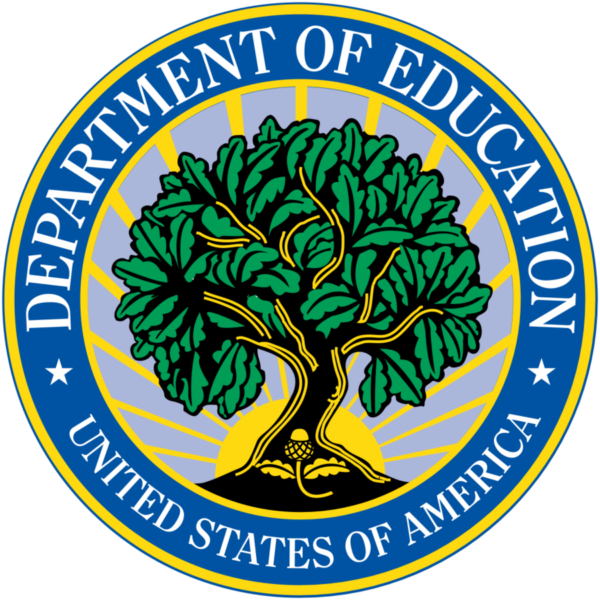
06 Aug Funding Alert! Department of Education Grants for Innovation in Education
United States Department of Education – Office of Elementary and Secondary Education: Education Innovation and Research (EIR) Program: Early-Phase Grants
Attention folks in higher education! Is your program seeking funding for researching and developing an innovative educational practice? The United States Department of Education’s Office of Elementary and Secondary Education (OESE) recently opened applications for Education Innovation and Research (EIR) Program for Early-phase grants. The EIR program is a phased structure that links the potential funding amount to the quality of supporting evidence for the proposed project’s efficacy. The expectation here is that projects will build upon their evidence and move through the EIR program phases: Early-phase, Mid-phase, and Expansion. For the purposes of this solicitation discussion, we’ll take a closer look at Early-phase grants.
What is the EIR program?
The Education Innovation and Research (EIR) Program provides funding “to create, develop, implement, replicate, or take to scale entrepreneurial, evidence-based, field-initiated innovations to improve student achievement and attainment for high-need students.” This grant program requires rigorous evaluation for funded projects, as the intent is to validate scalable educational innovations that can serve a growing number of students.
The multi-phase structure of the EIR Program incentivizes applicants:
- To explore innovative methods and practices for addressing persistent challenges, so other educators can learn from and build upon these methods;
- To build a body of evidence that supports the effectiveness of their methods;
- To replicate and scale effective methods and practices in other schools and school districts nationwide.
The funder expects to award 5-9 grants under Priority 2 and 6-8 grants under Priority 3, with an estimated award size of $10,000,000. Grants will not exceed $12,000,000 for a project period of 60 months. Applicants must provide a complete budget that covers the full 60-month project period, but the funder anticipates that initial awards will be made for a 36-month project period.
This grant requires a 10% match from Federal, State, local, or private sources. This can be provided as cash or in-kind contributions.
Who is eligible to apply?
Eligible applicants are state educational agencies (SEAs); local educational agencies (LEAs); the Bureau of Indian Education (BIE); consortiums of SEAs or LEAs; and nonprofit organizations. Alternatively, an applicant may be an LEA, an SEA, the BIE, or a consortium of SEAs and LEAs in partnership with a nonprofit organization, a business, an educational service agency, or an institution of higher education.
What makes a project a good fit?
Early-phase grant funds will support the development, implementation, and feasibility testing of a promising program (as suggested by prior research), in order to determine whether the program can improve educational achievement and attainment for high-need students. These grants are not intended to address needs that are unique to one location or context; rather, the goal is to fund innovative, scalable projects that address pressing challenges faced by educators nationwide. Successful Early-phase grantees will be focused on continuous improvement and development of their proposed practice, using data from early indicators to inform possible changes that could provide better results for high-need students.
This funding opportunity has three absolute priorities. All applicants must address Absolute Priority 1 in addition to one of the other two absolute priorities:
— Absolute Priority 1: Rationale: All Early-phase applicants must submit prior evidence of their proposed practice’s effectiveness in order to demonstrate an evidence rationale that aligns with the Early-phase tier of grants.
— Absolute Priority 2: Field-Initiated Innovations – STEM: Priority 2 projects support improved and expanded STEM learning and engagement, including computer science.
— Competitive Preference Priority 1: Projects that seek to reduce achievement and attainment gaps by expanding opportunities in computer science for underserved populations (e.g. minorities, girls, youth from rural communities, youth from low-income families, etc.) are eligible for additional points.
— Absolute Priority 3: Teacher-Directed Professional Learning: Priority 3 projects support efforts “to develop, implement, and evaluated teacher-directed professional learning projects” that focus on enhancing classroom instruction methods and improving educational outcomes for high-need students.
— Competitive Preference Priority 2: Projects that involve partnerships between an eligible entity and a State are eligible for additional points.
What if I am ready to apply? The first step is to submit your Notice of Intent to Apply, which is due August 18, 2020. The full proposal is due September 10, 2020. To move your application forward, take the following action steps ASAP:
- Watch the pre-recorded webinars on the OESE website. One provides an overview of the FY2020 EIR Competition, and another is specific to the Early-phase Competition.
- On the OESE website, look over the Eligibility Checklist and Evidence Checklists to confirm eligibility and to better understand the evidence criteria for each phase of the program.
- Make sure your System for Award Management (SAM) registration is active and be sure you have agov profile. You can check your SAM status here: https://www.sam.gov/SAM/pages/public/searchRecords/search.jsf.
- Identify what you will use for your cash or in-kind budget match.
What if I need help with this application?
Contact Assel Grant Services today! Our team can help with all aspects of preparing the application and managing the grant if you are awarded. If you would like to discuss this possibility, please contact AGS as soon as possible. Rosie Brennon, Community Engagement Specialist will be happy to talk with you about this opportunity and provide you a quote for grant services.
What if I am not ready to apply this year?
Start planning ahead for next year’s round. The OESE website has ample FAQs, resources, webinars, and checklists available to guide applicants through the process.
Competency #1: Knowledge of how to research, identify, and match funding resources to meet specific needs
Skill 1.2: Identify major trends in public funding and public policy
Skill 1.6: Identify fundable programs and projects for specific organization
Skill 1.7: Determine best matches between funders and specific programs
